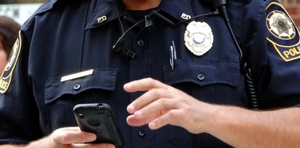Although the constitutionality of sobriety checkpoints has been challenged repeatedly across the country, it has consistently been upheld.

That being said, police agencies are held to strict standards regarding how these operations must be carried out.
Those include officers having a valid reason for establishing the checkpoint (high number of DUI arrest or alcohol-related accidents in a certain area). There must also be a specific plan regarding which vehicles will be stopped (i.e., every third car, every other car). Any deviation from that plan must be explained and may be grounds to challenge a subsequent arrest.
A DUI arrest in Florida can be successfully challenged. In fact, a recent news report by 10 News Tampa indicated nearly 40 percent of DUI arrest charges are later reduced to reckless driving or dismissed entirely. This doesn’t happen without a strong defense team that is knowledgeable of your rights and police responsibilities.
Still, challenging a sobriety checkpoint arrest is not always simple. The recent case of Reed v. Pettit wound all the way to the West Virginia Supreme Court before a conclusion was ultimately reached.
According to court records, a checkpoint was held in West Virginia, with the guidelines governed by the department’s sobriety checkpoint operation manual. Although several of the rules were followed, some were not.
For example, the operation was announced in a local newspaper, but, in violation of the manual, the local prosecutor’s office was not contacted for inclusion in the operation. Additionally, the chief of police in charge of the operation moved it at the last minute to about four miles from the originally-scheduled location, due to a shortage of officers. Units at the new location could respond more quickly to an emergency call if necessary, he said. The manual requires a total of seven officers at a checkpoint, only five were used on this one, due to the agency being short-staffed.
Defendant came through the checkpoint. Officers reported his eyes were glassy and speech slurred. He allegedly admitted he had drunk alcohol at home and later at a bar. He then failed a number of the sobriety tests. (The results of one was later not considered because the officer failed to conduct a medical assessment prior to conducting the test.) A breathalyzer test was then administered, and defendant reportedly blew a .157 blood-alcohol content – nearly double the legal limit of .08.
The department of motor vehicles revoked his driving privileges, but he appealed and the agency reversed, based on the fact the police department’s checkpoint deviated from the rules set forth in the manual.
The DMV appealed the decision to the circuit court, which affirmed. However, the state supreme court reversed.
The issue before the court as the legal validity of the sobriety checkpoint, upon which all else rested. But the state argued it wasn’t necessary for the police to follow the guidelines perfectly, and the court should balance the effect of these deviations on defendant’s rights. Defendant argued if officers had unfettered discretion, they could simply disregard the guidelines at will.
State supreme court noted the agency’s violations didn’t amount to per se violations of state or federal constitutional requirements regarding checkpoints. For example, there is nothing in federal statute or case law that requires a county prosecutor to approve a sobriety checkpoint or that it can’t be moved after the initial announcement or that a certain number of officers must be present. These were requirements drafted by the police department that went beyond the federal and state constitutional requirements.
For this reason, the court ruled a balancing test was necessary, and on this basis, the checkpoint was lawful because officers did not exercise an unreasonable degree of discretion and did not unreasonably interfere with the liberty of motorists passing through the checkpoint.
Call Fort Lauderdale Criminal Defense Attorney Richard Ansara at (954) 761-4011. Serving Broward, Miami-Dade and Palm Beach counties.
Additional Resources:
Reed v. Pettit, May 13, 2015, West Virginia Supreme Court
More Blog Entries:
Implied Consent Means Punishment for Refusal to Submit to Alcohol Testing, May 14, 2015, Fort Lauderdale DUI Defense Lawyer Blog
